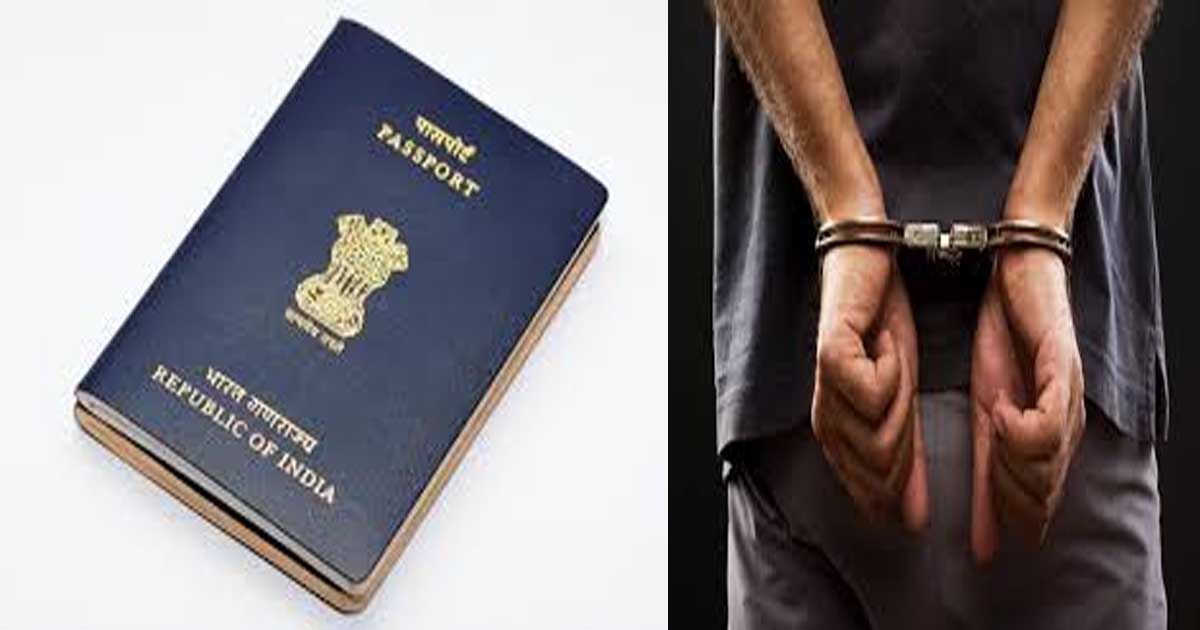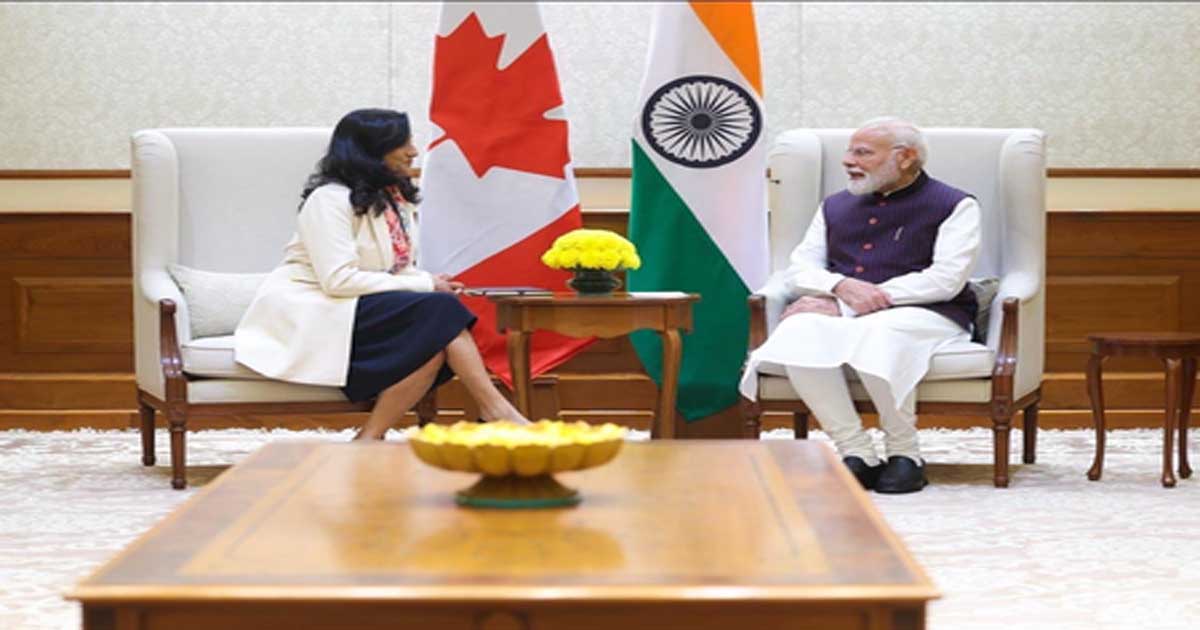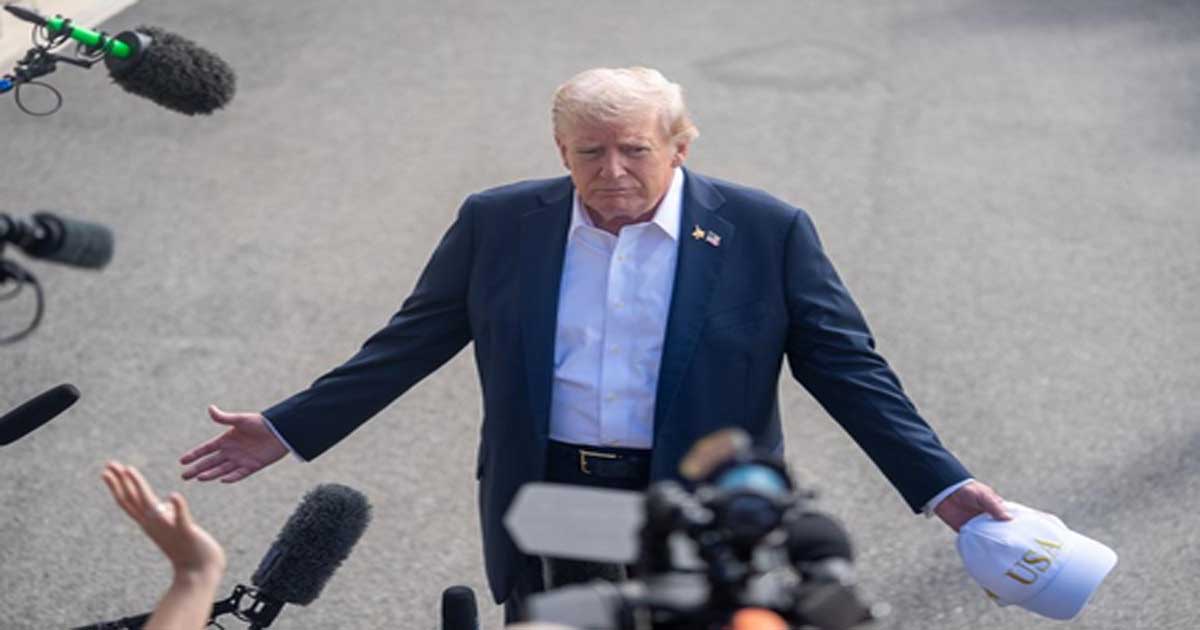International News
Rahul Gandhi’s American Truck Yatra Turns To Be PR Event

In a recent visit to the United States, Rahul Gandhi, a former MP and Congress party leader, claimed to have undertaken a journey with a ‘normal truck driver’, which he referred to as his American Truck Yatra. The yatra was a 190 km journey from Washington DC to New York. However, it has now been revealed that the truck driver was not an ordinary individual as initially portrayed.
Speculations and Social Media Claims
Shortly after Rahul Gandhi’s announcement, a Twitter account associated with trolling and political commentary suggested that the truck driver was a supporter of the Bharatiya Janata Party (BJP) who expressed discontentment with the party’s communal politics. Additionally, an Aam Aadmi Party (AAP) troll, posted about how comfortable Rahul Gandhi appeared with the supposed common truck driver.
The Truth Behind the PR Event
Contrary to the initial narrative, it has been uncovered that the truck driver involved in the event was not an ordinary citizen but Taljinder Singh Vicky Gill, the President of the Indian Overseas Youth Congress America (IOYCA).
Vijay Patel, who claims to be an investigative reporter took to his Twitter and posted images claiming to be facts about the Congress party’s PR event held in the US. The event, presented as a spontaneous interaction with a common truck driver, was actually a pre-planned public relations effort.
Taljinder Singh Vicky Gill’s Background
Before assuming the position of the President of the IOYCA, Taljinder Singh Vicky Gill held the role of NSUI Vice President. His presence alongside Rahul Gandhi in the Bharat Jodo Yatra event was part of a larger image makeover strategy for the Congress party, alleged Patel.
In response to the controversy, representatives from the Congress party have yet not issued an official statement regarding the event or the involvement of Taljinder Singh Vicky Gill.
General
Strict action will now be taken against criminals who flee the country. Their passports will be cancelled and they will not be able to travel abroad.

New Delhi: Union Home Minister Amit Shah stated that fugitives involved in various crimes, including terrorist activities, gangsterism, cyber and economic crimes, who flee the country will not be spared under any circumstances. A more stringent approach will be adopted against them. During the process of issuing Red Corner Notices against such fugitives, their passports will be red flagged, meaning they will be cancelled, preventing them from legally moving from one country to another. He also called for at least one special jail in each state, meeting international standards, to be built to refute fugitives’ claims in foreign courts about the poor quality of facilities in Indian prisons. Home Minister Amit Shah made this statement on Thursday at a two-day conference organized by the CBI on “Extradition of Fugitives – Challenges and Strategies.”
He stated that after 2027, any accused in an FIR will be able to receive justice within three years, from the lower court to the Supreme Court. He also urged police officers from all states present to establish a focus group to coordinate narcotics, terrorism, gangsterism, economic, and cybercrime, which the IB and CBI should work to accelerate through the Multi-Agency Center (MAC). He emphasized that a strict approach should be adopted not only against corruption, crime, and terrorism, but also against gangsters and criminals operating in syndicates outside India. No matter how swift the tactics of crime and criminals, access to justice must be even faster. Referring to the three new criminal laws that will come into effect in July 2024, Shah said that for the first time since independence, a provision has been made to prosecute fugitives even in their absence. Thus, if a fugitive is convicted, his status under international law changes significantly.
The enactment of the Fugitive Economic Offenders Act in 2018 empowered the government to seize the assets of fugitives. Within just four years, we have seized assets worth nearly two billion dollars, and between 2014 and 2023, assets worth approximately $12 billion have been seized. The Prevention of Money Laundering Act (PMLA) has also been strengthened. Since the CBI is the designated agency in India for the extradition of fugitives who have fled abroad, each state should establish a special cell unit with the agency’s assistance to create a mechanism for bringing back fugitives who have fled their respective states. The CBI has established a Global Operations Center (GOC) to apprehend fugitives internationally, providing real-time coordination with police forces around the world.
Regarding the online portal “Bharatpol,” established by the CBI for international police cooperation, the Home Minister stated that it has achieved significant results since its inception in January 2025. Union Home Secretary Govind Mohan, the Foreign Secretary, CBI Director Praveen Sood, and IB Chiefs, along with police officers from various states, were present on the occasion. A SOP will be developed through discussions during this two-day conference, which will address the challenges of repatriating fugitives, tracking their real-time status, and identifying shortcomings in their failure to be repatriated.
International News
SPM Modi hails efforts to impart ‘new momentum’ in bilateral ties during meeting with Canadian FM

New Delhi, Oct 13: Prime Minister Narendra Modi on Monday conveyed to Canadian Foreign Minister Anita Anand that her India visit would contribute to ongoing efforts to impart new momentum to the India–Canada bilateral partnership.
PM Modi hails ‘new momentum’ in bilateral ties during meeting with Canadian FM
Anand, the Minister of Foreign Affairs of Canada, called on PM Modi on Monday morning before holding discussions with External Affairs Minister (EAM) S Jaishankar.
Welcoming Anand, Prime Minister Modi recalled his visit to Canada in June this year for the G7 Summit during which he held an “extremely productive” meeting with Prime Minister Mark Carney.
“Prime Minister noted the significance of enhanced cooperation between the two countries in trade, energy, technology, agriculture and people-to-people ties. Prime Minister conveyed his warm wishes to Prime Minister Mark Carney and said that he looked forward to their upcoming engagements,” read a statement issued by the Prime Minister’s Office (PMO).
“I met with Prime Minister Narendra Modi this morning in New Delhi. Building on the momentum of Prime Minister Mark Carney’s meeting with PM Modi this summer at the G7 Summit, Canada and India are elevating the relationship between our countries, while maintaining our law enforcement and security dialogue and expanding our economic relationship,” Anand posted on X after the meeting with PM Modi.
Earlier, EAM Jaishankar said that the ties between India and Canada have been steadily progressing in the past few months, and the two nations are working to restore the mechanisms necessary to advance the partnership.
Welcoming Anand on her first visit to India as Canada’s Foreign Minister, EAM Jaishankar said, “India-Canada bilateral relations have been steadily progressing in the last few months. We are working to restore and reinvigorate the mechanisms necessary to advance our partnership.”
“As Prime Minister Modi noted during his meeting with Prime Minister Carney in Kananaskis, India’s approach is to move forward with a positive mindset. This morning, you met the Prime Minister. You have heard from him personally about our vision of cooperation and how best to realise it,” he added.
He also recalled the “productive” meeting between National Security Advisor (NSA) Ajit Doval and Canadian NSA Nathalie G. Drouin, calling it “an important first step towards enhancing our security cooperation.”
“Our foreign ministries at the level of the secretary of the deputy minister also met on September 19 to review the overall relationship. Our trade ministers spoke recently on October 11. So, when we look at Canada, we see a complementary economy, we see another open society, we see diversity and pluralism, and we believe that that is the basis for a close, sustainable and long-term cooperative framework,” EAM Jaishankar added.
He noted that India and Canada have prepared an ambitious roadmap to advance cooperation in various sectors, including science and technology, civil nuclear collaboration, AI, trade and agriculture.
“I’m glad that the two high commissioners have assumed their responsibilities in our respective capitals and are part of today’s meeting. This is our high commissioner with whom you have spoken,” the EAM added.
“Our responsibility as foreign ministers is to shepherd the process of rebuilding our cooperation and to ensure that it delivers on the expectations of our prime ministers and the interests of our people. It means not only taking initiatives in our particular jurisdiction, but also monitoring and integrating interactions across the entire breadth of the government. I look forward to doing so, working closely with you, Minister,” he added.
International News
I am good at solving wars: Trump says he will resolve Afghanistan-Pakistan conflict

Washington, Oct 13: US President Donald Trump has expressed his intention to mediate the border conflict between Pakistan and Afghanistan, claiming that he can bring an end to the dispute, referring to the other wars that he has “resolved”.
He made these statements as he was heading to Egypt for a summit on the Gaza peace process, which will officially mark the end of the two-year-long conflict in the Middle East, claiming it to be the eighth war he has resolved.
Speaking to reporters, Trump said, “This will be my eighth war that I have solved, and I hear there is a war now going on between Pakistan and Afghanistan.”
“I said, I’ll have to wait till I get back. I am doing another one. Because I am good at solving wars,” he said, adding that conflicts that lasted for decades were solved ‘relatively quickly’ during his tenure as the US President.
“Think about India, Pakistan. Think about some of the wars that were going on for years… We had one going for 31, one going for 32, one going for 37 years, with millions of people being killed in every country, and I got every one of those done, for the most part, within a day. It’s pretty good,” Trump said.
Speaking about the Nobel Peace Prize, which was accorded to Venezuelan opposition leader Maria Corina Machado, Trump said, “I did not do this for the Nobel. I did this for saving lives.”
“The person who got the Nobel Prize called me today and said, ‘I am accepting this in honour of you, because you really deserved it’. I’ve been helping her along the way,” he added.
Trump outlined several international disputes that he asserted were resolved during his leadership, including those between Armenia and Azerbaijan, Kosovo and Serbia, Israel and Iran, Egypt and Ethiopia, and Rwanda and the Congo.
-

 Crime3 years ago
Crime3 years agoClass 10 student jumps to death in Jaipur
-

 Maharashtra1 year ago
Maharashtra1 year agoMumbai Local Train Update: Central Railway’s New Timetable Comes Into Effect; Check Full List Of Revised Timings & Stations
-

 Maharashtra1 year ago
Maharashtra1 year agoMumbai To Go Toll-Free Tonight! Maharashtra Govt Announces Complete Toll Waiver For Light Motor Vehicles At All 5 Entry Points Of City
-

 Maharashtra1 year ago
Maharashtra1 year agoFalse photo of Imtiaz Jaleel’s rally, exposing the fooling conspiracy
-

 National News1 year ago
National News1 year agoMinistry of Railways rolls out Special Drive 4.0 with focus on digitisation, cleanliness, inclusiveness and grievance redressal
-

 Maharashtra11 months ago
Maharashtra11 months agoMaharashtra Elections 2024: Mumbai Metro & BEST Services Extended Till Midnight On Voting Day
-

 National News1 year ago
National News1 year agoJ&K: 4 Jawans Killed, 28 Injured After Bus Carrying BSF Personnel For Poll Duty Falls Into Gorge In Budgam; Terrifying Visuals Surface
-

 Crime1 year ago
Crime1 year agoBaba Siddique Murder: Mumbai Police Unable To Get Lawrence Bishnoi Custody Due To Home Ministry Order, Says Report












